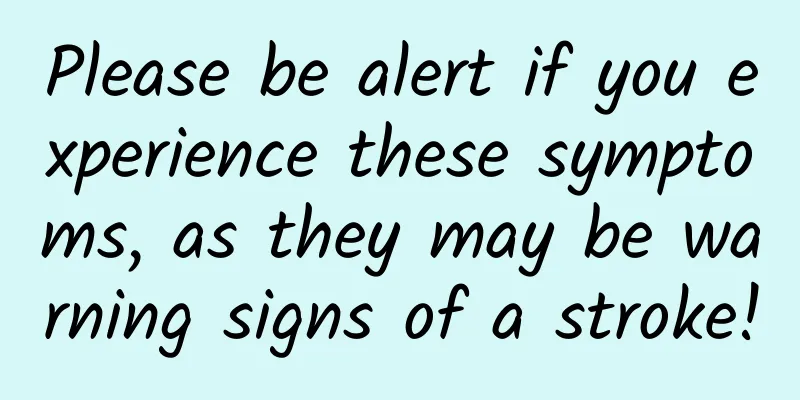People who love to laugh will not suffer from depression? If your friend is depressed, you must do this!

|
Author: Ren Tianling Beijing China Science Popularization Mental Health Promotion Center Tang Yicheng Member of the Science Popularization Committee of the Chinese Psychological Society Executive Deputy Director of the Beijing China Science Popularization Mental Health Promotion Center Reviewer: Mao Lihua, Associate Professor, School of Psychology and Cognitive Science, Peking University Fan Chunlei, Associate Researcher, Institute of Psychology, Chinese Academy of Sciences On the evening of July 5, the sister of the famous singer Coco Lee @李思林Nancy posted on Weibo that Coco Lee unfortunately suffered from depression a few years ago. After a long battle with the disease, her condition took a turn for the worse recently. She committed suicide at home on July 2 and remained in a coma after being sent to the hospital. After the hospital team's efforts to rescue and treat her, she eventually passed away on July 5. This made many fans very sad and shocked, and many netizens said, "I really can't believe how optimistic Coco looks!" So, do optimistic and cheerful people not suffer from depression? Weibo screenshot analyze Let me answer everyone’s question first. “Sunny and cheerful people will not suffer from depression” is a common misunderstanding. People with cheerful and lively personalities may also suffer from depression. Copyrighted stock images, no reproduction is authorized When it comes to depression, the symptoms that come to mind are: Persistent depression and inability to be happy Loss of interest in things that were previously interesting to you Decreased physical strength and energy, easy fatigue Sleep disturbances, including insomnia or sleeping too much Changes in appetite, loss of appetite, or overeating Rapid mood changes Slow thinking and slow movements Pessimism, hopelessness and helplessness Suicidal thoughts or behaviors These are indeed common symptoms of depression, but there is also a type of "smiling depression" in depression. In addition to the sensitivity, inferiority, and excessive introspection of ordinary patients with depression, these patients with depression often have personal perfectionism and histrionic personality disorder. They often indulge in the role of a perfect person, or they are afraid that their emotions will affect the people around them and are unwilling to burden others, so they hide their depressed side and choose to "treat others with a smile." Even if they are in a low state of mind, they will still smile in front of others, making them look happy and cheerful, and mistakenly thinking that they are in a good mood and have a happy life, which makes it difficult for people to discover their depressive tendencies. Copyrighted stock images, no reproduction is authorized If there are people with depression around me, what should I do? Many people don’t know what to do when facing relatives and friends with depression. They are afraid of saying the wrong thing or doing the wrong thing to hurt the other person. However, people with depression need the love, support, companionship and encouragement of their relatives and friends. Today we will provide you with some methods and suggestions to correctly face and help friends with depression. 1. Don’t mention these 9 “don’ts” to him Don't tell him to "just think positively" Don't tell him to stop being so hypocritical. Don't tell him you're just too fragile Don't tell him to stop being selfish. Don't say to him "Why are you depressed? What do you have to be depressed about?" Don't say to him "I know how you feel, I can relate to you" Don't compare his experience with others. Don't deny his symptoms and pain Don't ignore his feelings 2. Let him know that you care about him and his feelings Psychological pain is no less severe than physical pain. If we ignore his feelings, he may feel that he should not open up to us, and then isolate himself again. Therefore, we should face his feelings and pain, and express our care for him, such as giving him a big hug or a gentle caress. Copyrighted stock images, no reproduction is authorized 3. Ask about his wishes Depression can make people feel lonely and isolated, but forcing someone to accompany you, such as "Let's go out for exercise together" or "Let's have dinner together," is not a good way to help them. The right thing to do is to ask for their willingness before making suggestions, such as "Would you like to go for a walk with me?" "How about we go to dinner together?" This can effectively reduce their stress. If they refuse, we can say, "Can I come with you?" In this process, it is important to ask for their willingness. We should not make decisions for them based on what we think is good for them. 4. Let him know that you will do your best to understand him It is often difficult for people who have not experienced the same thing to truly empathize with you, but we need to let him know that we will do our best to understand him. Tell him, "I'm sorry you are going through this, I can only imagine how hard it is for you, but I will do my best to understand you." 5. Let him know, "Do you need to chat? I'm here." We should not force him to have a conversation, which will make him feel stressed, but let him know that you are someone he can trust and confide in. If he is ready, you can have a high-quality conversation with him. If he is not ready, we just need to remind him, "I am here when you are ready." If he has not yet confessed his depression to you, you can say "I can see that you are going through a difficult time, and I am here if you want to talk." This will let him know that he can get help from you when he needs it, and when he is ready, providing him with a safe communication environment, asking open-ended questions, and listening without criticism can help him get through this difficult time. If you find that his symptoms are beyond the scope of your help or there is a risk of suicide, it is recommended to seek professional help in time. Copyrighted stock images, no reproduction is authorized in conclusion "People who love to laugh" may also suffer from depression, and smiling may just be a protective color they wear. When facing relatives and friends with depression around you, do not avoid discussing the topic of depression, and do not think that they are making a mountain out of a molehill, being hypocritical, or complaining without illness. You should care about and respect their feelings, understand their pain, and help them and accompany them out of their difficulties. References: Fassler, D., & Dumas, LS (1997). Help me, I'm sad: Recognizing, treating, and preventing childhood and adolescent depression. Viking. The article is produced by "Science Refutes Facts" (ID: Science_Facts). Please indicate the source when reprinting. The cover image and images within this article are from the copyright gallery. Reprinting and quoting them may lead to copyright disputes. |
<<: Stay away from "earthworm legs" and have more beautiful legs
>>: Do you feel guilty about eating?
Recommend
How to use insulin and what are the precautions for use
Insulin is a common hypoglycemic drug. Since its ...
Pregnant women have no appetite in summer
It is normal for pregnant women to have a loss of...
How to care for the vagina? Three key points of vaginal care
The vagina is a particularly private organ for wo...
How do diabetic patients choose appropriate hypoglycemic drugs? What indicators should be considered when monitoring blood sugar?
Author: Li Guangwei, Chief Physician, Fuwai Hospi...
What is the reason why women suffer from back pain when standing for a long time?
Many female friends will experience some back pai...
What are the dietary treatments for wind-heat cold in pregnant women?
Pregnant women are more fragile than ordinary peo...
How long does it take for abdominal pain in early pregnancy to disappear?
Abdominal pain in the early stages of pregnancy i...
Drink these four types of slimming tea regularly to lose weight and stay healthy!
Drinking tea is one of China's traditional cu...
A woman's tongue reveals her illness
In life, we taste all kinds of food through our t...
Women must do one thing after urinating
Generally speaking, women's restrooms in publ...
How to prevent gastric cancer?
Ordering takeout for three meals a day, working u...
How to wear colored contact lenses easily and quickly
Wearing colored contact lenses can make our eyes ...
What color is better for children's rooms? Should children's rooms be solid colors or multi-color?
We all know that when decorating a home, a childr...
Severe vomiting during pregnancy, is it a boy or a girl?
Does morning sickness have anything to do with wh...
How to prevent visceral prolapse after childbirth
We all know that it is not easy for our female fr...









